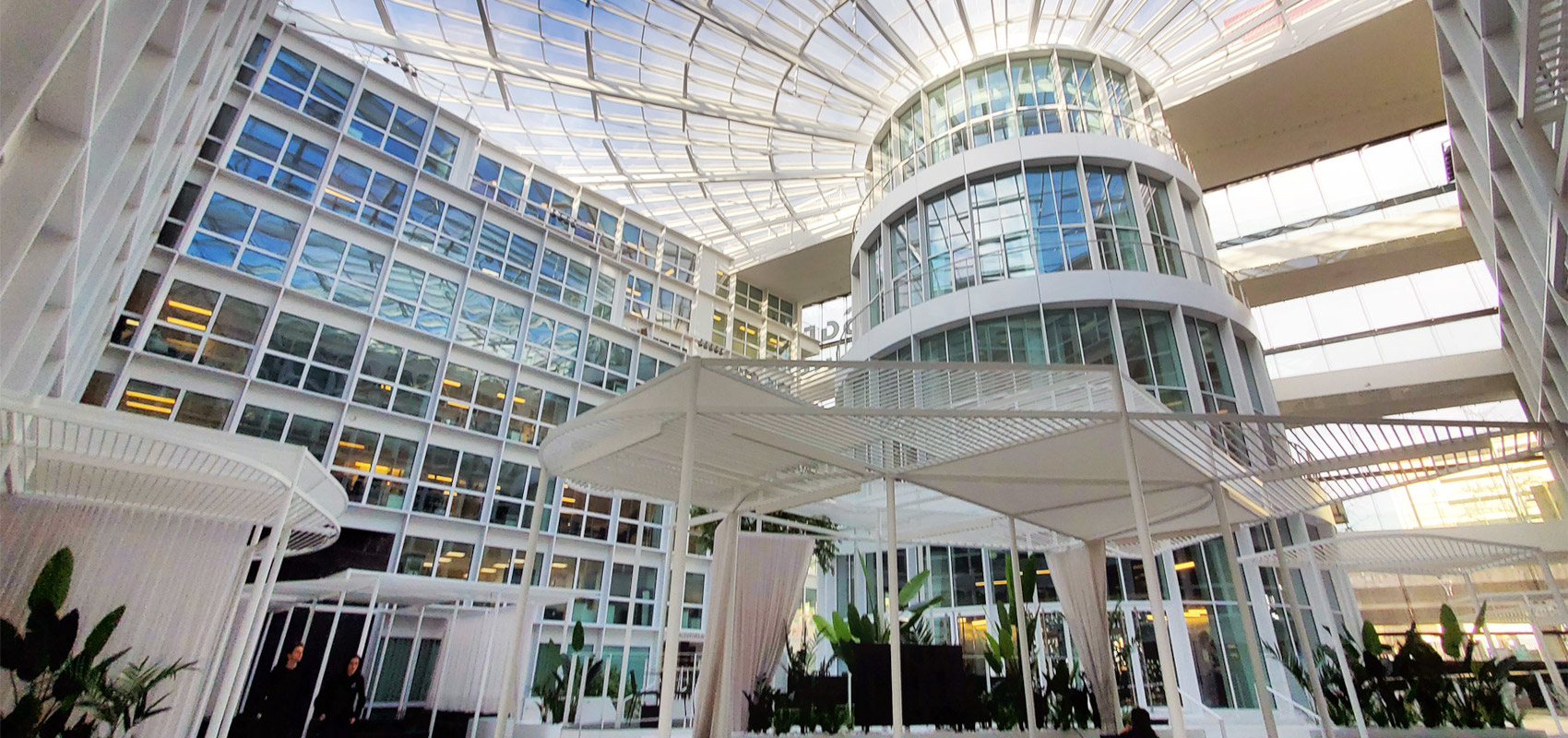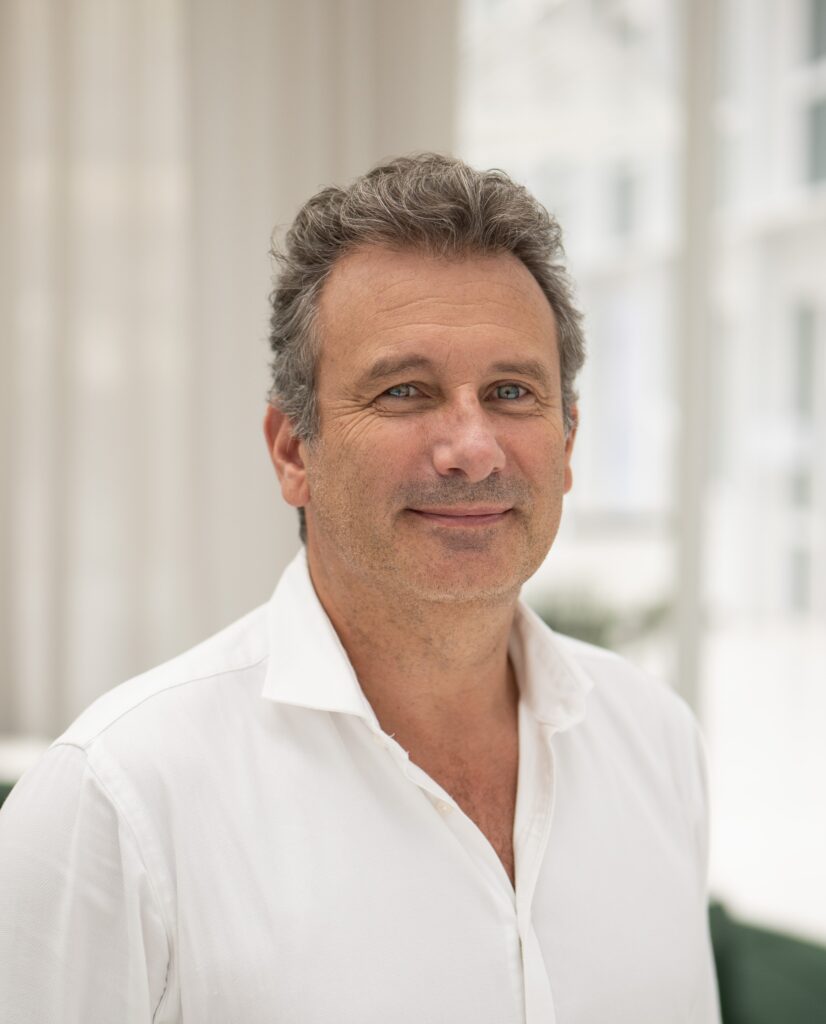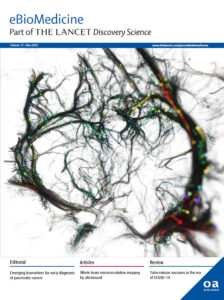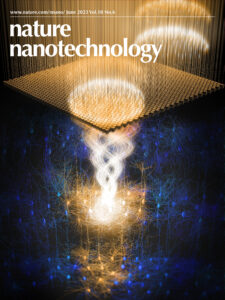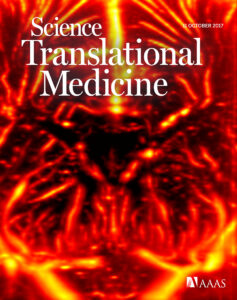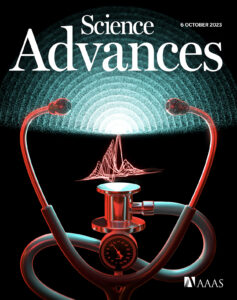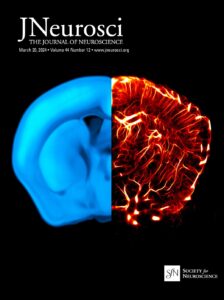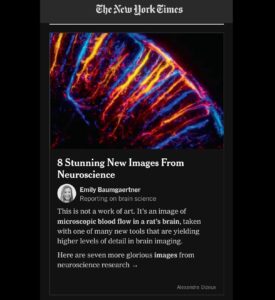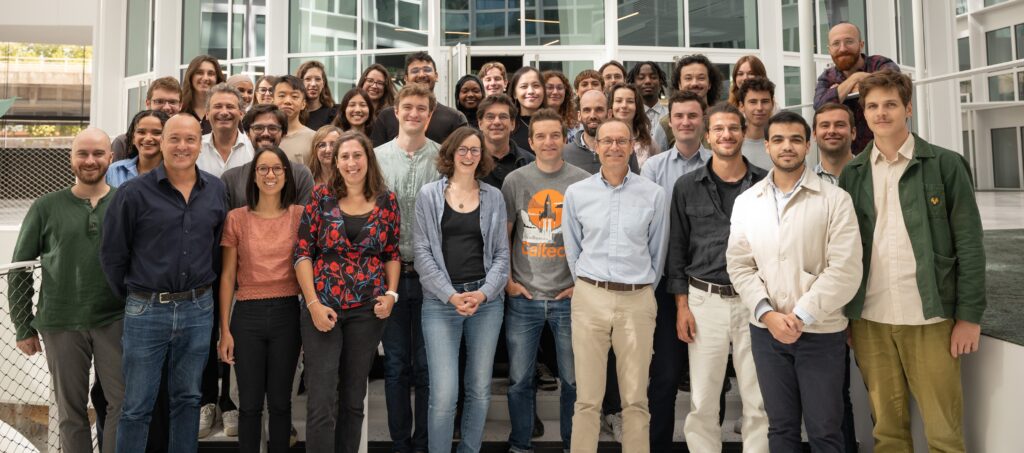About us
Physics for Medicine Paris was founded in 2007 by Mickael Tanter with a singular ambition: to put the power of physics at the service of medicine.
As a joint research unit between ESPCI Paris-PSL, Inserm, and CNRS, the Institute Physics for Medicine, also known in French as Institut Physique pour la Médecine, was established on the conviction that major advances in healthcare emerge at the interface of disciplines—particularly between fundamental physics, engineering, and biomedical sciences. Since 2025, the lab has been led by Director Mathieu Pernot and Deputy Director Thomas Deffieux.
From its earliest years, the lab rapidly gained international recognition for pioneering work in ultrafast ultrasound imaging—a breakthrough technology that enables real-time imaging at thousands of frames per second, far beyond the capabilities of conventional ultrasound. This innovation opened the door to entirely new clinical applications, from functional brain imaging to cardiovascular diagnostics, and laid the foundation for the development of ultrasound-based therapeutic approaches.
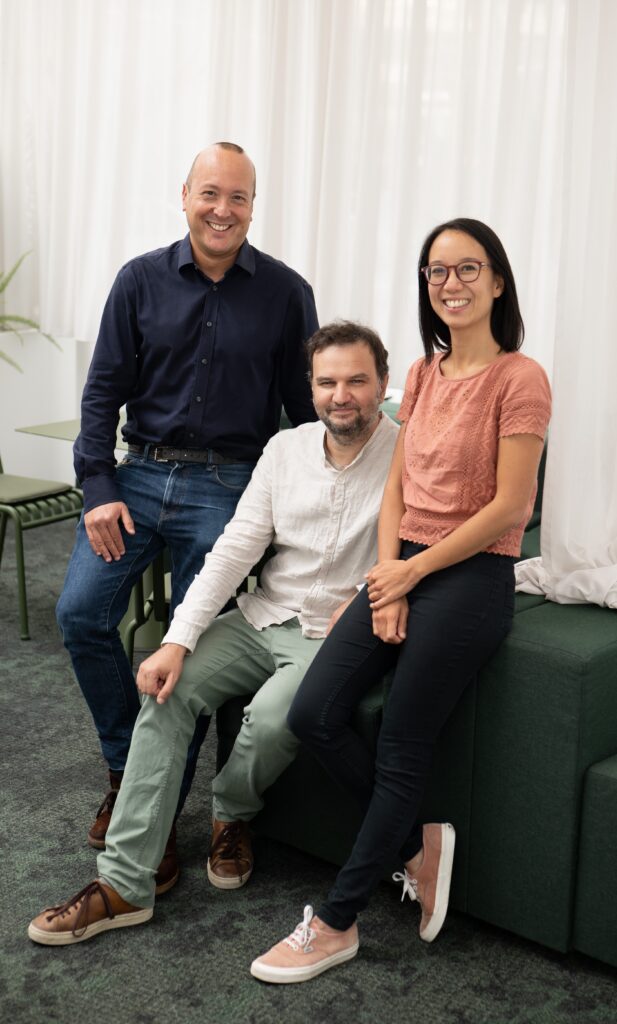
Mathieu Pernot, Thomas Deffieux & Thu-Mai Nguyen (Head of administration) – Institute Physics for Medicine Paris
Since 2016, Physics for Medicine Paris has been home to a unique Technological Research Accelerator (ART) dedicated to Biomedical Ultrasound. Established by Inserm within the institute, this program was created to fast-track the translation of laboratory innovations into practical solutions for end-users. The ART comprises a team of dedicated engineers who collaborate closely with researchers to integrate cutting-edge discoveries into functional prototypes, enabling seamless use by biologists and clinicians. This strategic infrastructure has significantly enhanced our ability to bridge the gap between fundamental research and clinical application.
The lab has maintained a strong culture of translational research, actively transferring its discoveries from bench to bedside. Several startup companies have emerged from this dynamic ecosystem, providing medical technologies for various healthcare applications, including cancer diagnosis, brain neuroimaging, non-invasive cardiac therapy and treatment of brain disorders. These ventures reflect not only the lab’s scientific productivity but also its commitment to societal impact through innovation.
2007: Creation of the research team Wave Physics for Medicine and Biology (Inserm Unit 979 within the Institute Langevin at ESPCI Paris/CNRS)
2011: Seminal article on functional ultrasound imaging published in Nature Methods
2014: Creation of Cardiawave, founded to develop Valvosoft®, a non-invasive ultrasound treatment for cardiac valve disease. First-in-human procedure has been performed in 2019 on patients with severe aortic stenosis
2014: First 3D ultrafast ultrasound scanner
2015: First publication on ultrasound localization microscopy in Nature
2016: Creation of the lab’s Technological Research Accelerator (ART) by Inserm to support prototype development and translational research
2016: Launch of Iconeus, a startup dedicated to ultrasound neuroimaging and microangiography
2017: Proof-of-concept of functional ultrasound to map the cerebral activity of human neonates
2019: Founding of Institute Physics for Medicine Paris, joint research unit of ESPCI Paris–PSL, Inserm (Unit 1273), and CNRS (UMR 8063), with a mission to develop innovative ultrasound technologies for medicine
2021: First-in-human demonstration of brain microvasculature imaging using ultrasound localization microscopy
2023: Relocation to PariSanté Campus, France’s flagship innovation ecosystem for digital and biomedical technologies
2023: eMyoSound is founded to develop innovative ultrasound technology for cardiac diagnosis
2024: Sonomind is launched to advance non-invasive treatment of brain disorders
2024: Kick-off of the Ze[US] project to develop the first worldwide demonstrator for multi-scale, full-body, ultrafast ultrasound imaging. A France 2030 laureate, this research project receives government funding managed by the ANR (French National Research Agency)
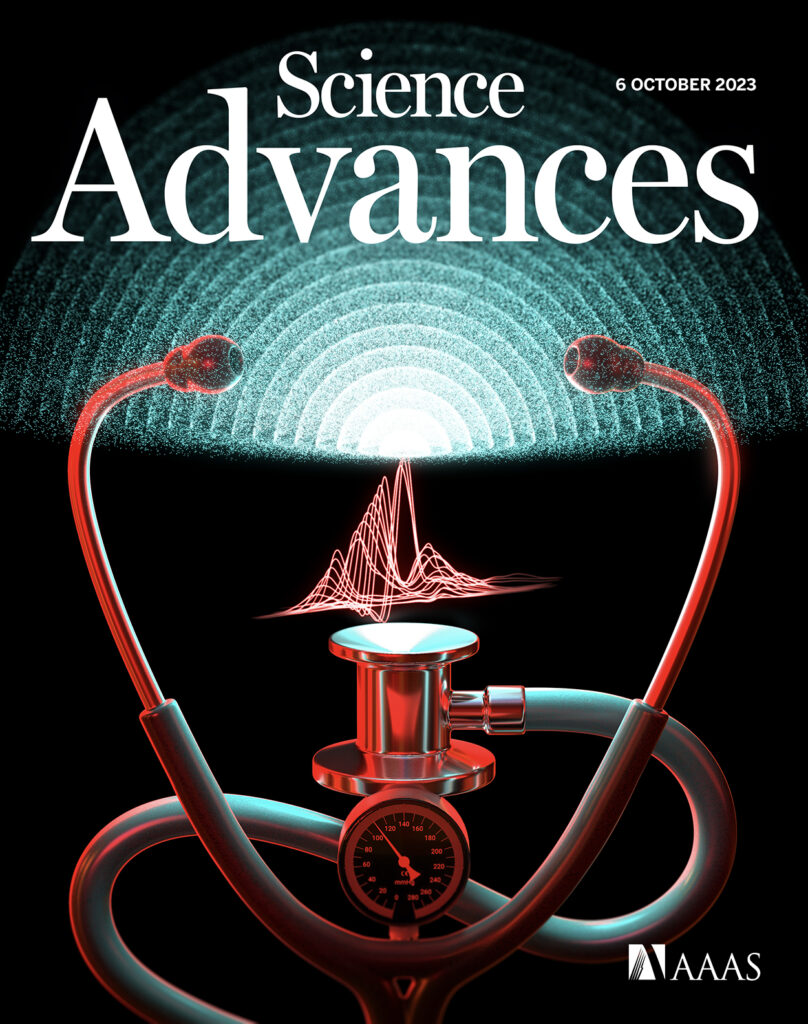
The fundamental mechanisms of the Korotkoff sounds generation
The lab’s impact is reflected in its key performance indicators:
- 50+ patents filed, many of which have led to licensed technologies and startups
- 5 ongoing European grants, including ERC Starting, Consolidator, Advanced and Synergy Grants
- 14000+ citations of our publications
- 22+ articles published in the Nature family of journals, with wide influence across physics, biomedical engineering, and clinical research
- 25 articles published in 2024 and already 13 in 2025
These figures underscore the lab’s dual strength in fundamental innovation and applied translation.
Physics for Medicine Paris today brings together a multidisciplinary team of over 60 members, including:
- 11 Researchers
- 30 PhD Students & Postdoctoral Fellows
- 20 Engineers, technicians and administrative staff
- 20 interns
➡️ Discover the full team here
Over the past ten years, our researchers and students have received more than 40 national and international distinctions.
These prizes reflect the diversity of our work, from fundamental physics to medical applications, the quality of our training environment and the impact of our work.
Highlights include:
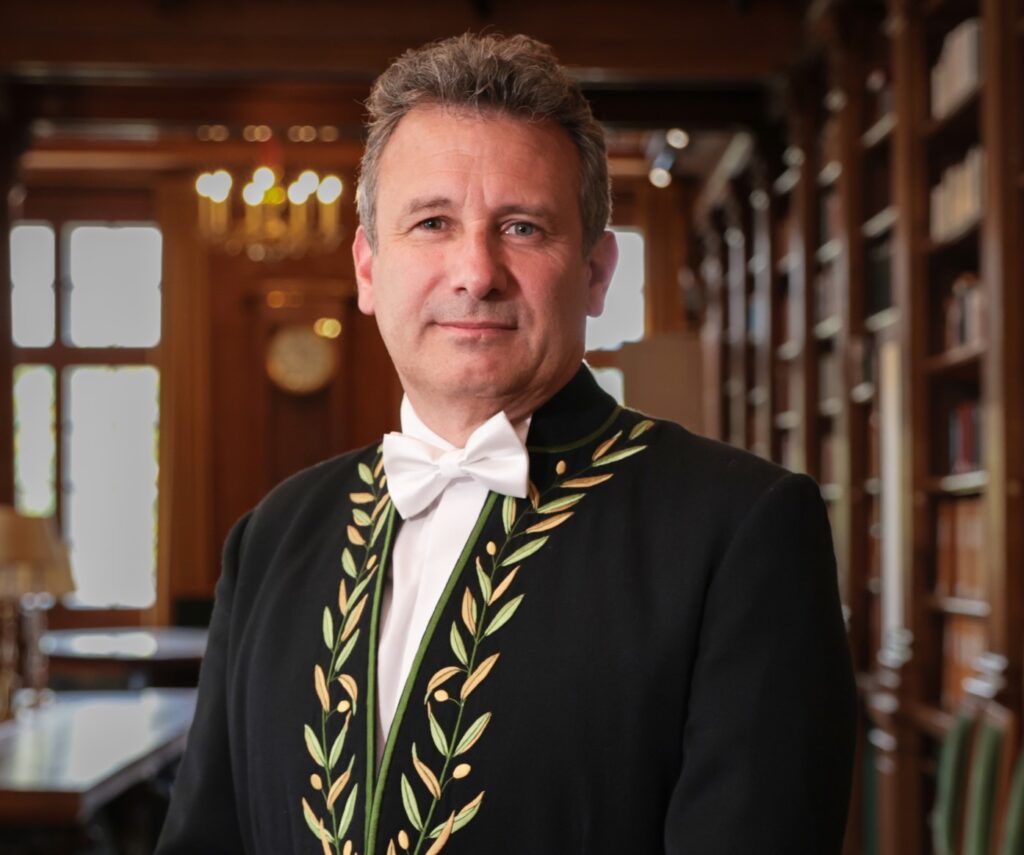 Mickaël Tanter has received numerous personal distinctions, such as:
Mickaël Tanter has received numerous personal distinctions, such as:
- the Grand Prix of the French Foundation for Medical Research (2016)
- the Scientific Grand Prix of the NRJ Foundation – Institut de France – Académie des Sciences (2015)
- the Grand Prix of the European Society for Molecular Imaging (ESMI) (2018)
- the William Feindel Lecture Award in Montreal (2024)
- the membership in the Académie des Sciences (elected December 2024)
- Mickaël Tanter and Mathieu Pernot have been honored as winners of Le Point’s 2024 Inventors prize
- Mathieu Pernot was awarded the Langlois Foundation Prize (2024) and the Innovator Prize by the Île-de-France Region (2021).
- In 2019, the Institute Physics for Medicine was designated a Center of Excellence in Therapeutic Ultrasound—the third in Europe—by the Focused Ultrasound Foundation, recognizing our pivotal role in non-invasive therapy innovation.
- Clément Papadacci received the Young Investigator Award at the EuroEcho conference for his work on 3D ultrafast echocardiography (2019)
- Also in 2019, PhD graduates Charlotte Constans and Guillaume Maimbourg were awarded the prestigious Prix de la Chancellerie des Universités de Paris for the outstanding quality of their theses in “Physics and Chemistry” and “Mechanics, Electronics, Informatics and Technology”, supervized by Jean-François Aubry.
Our doctoral and student achievements continued robustly:
- Hanna Bendjador received the Best Student Award at the IEEE International Ultrasonics Symposium (2020) and was also awarded the 2020 French Rising Talent Prize “For Women in Science”
- Olivier Pedreira received the Best Student Award at the IEEE International Ultrasonics Symposium (2021)
- Noemi Renaudin was honored with the “Young Talent Award for Women in Science” by the Fondation L’Oréal-UNESCO (2022)
- Thomas Tiennot received the Grand Prix of the i-PhD contest for his project on ultrasonic treatment of drug-resistant depression (2022)
- Cyprien Blanquart received the Best Student Award at the IEEE International Ultrasonics Symposium (2023)
- Nicolas Zucker earned a Poster Award at EMIM 2024 for his work on functional ultrasound localization microscopy (2024)
These awards illustrate the recognition of both senior scientists and young researchers, and contribute to the international visibility of the laboratory.
Strategically located in Paris, Physics for Medicine Paris is embedded within a dynamic academic and biomedical innovation environment.
The lab is jointly operated by three prestigious French institutions:
- ESPCI Paris–PSL, a leading school of physics, chemistry and engineering
- Inserm, France’s national institute for health and medical research
- CNRS, the French national research center
This triple affiliation allows the lab to leverage robust scientific networks, multidisciplinary collaborations, and state-of-the-art resources. The lab is also a member of the PariSanté Campus, an emerging hub for digital health and biomedical innovation, reinforcing its visibility and collaborative potential at national and European levels.
Collaborations with Assistance Publique–Hôpitaux de Paris (AP-HP), France’s largest hospital network, and major academic medical centers foster the clinical translation of research findings. These partnerships enable real-time validation of new technologies in hospital settings and ensure alignment with clinical priorities.
